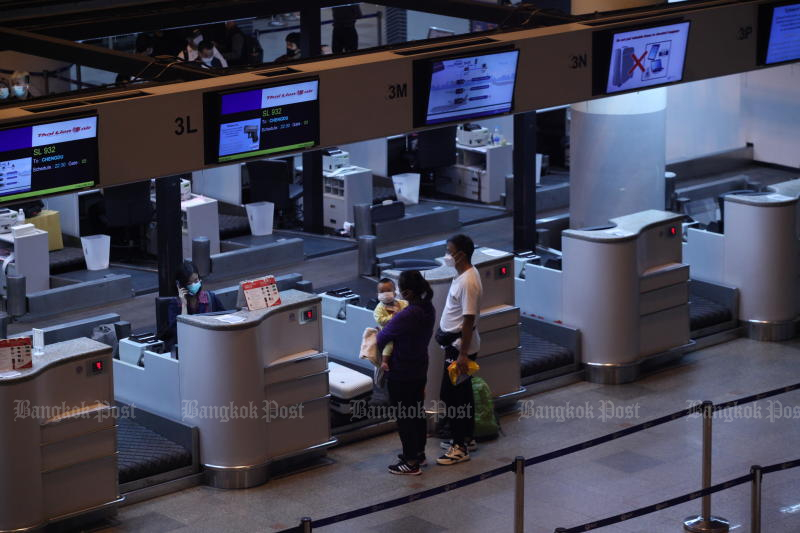
Thailand’s stock exchange opened the week on a grim note as recession fears and rising local coronavirus cases outweigh the US Federal Reserve’s rate cut and quantitative easing measures.
The Stock Exchange of Thailand (SET) index plummeted by 62.17 points or -5.5% to close the morning trading session at 1,066.74 in turnover worth 34.85 billion baht. At 2.36pm, the index was down 6.7%
Shares of Airports of Thailand Plc (AOT) stumbled the most -- -8.85% -- followed by PTTEP (-8.68%), KBANK (-8.12%), BAM (-6.63%) and GULD (-5.54%).
The SET nosedived last week, losing more than 235 points or around -17.3% on the back of the Covid-19 pandemic and lower crude prices. A circuit breaker was triggered twice during intra-day trading sessions on Thursday morning and Friday afternoon as the SET index plummeted by more than 10%.
“We expect the SET to continue to swing wildly from last week as it continues to see pressure from the Covid-19 outbreak,” said Finansia Syrus Securities (FSS) in its daily focus note.
“According to the latest data, the number of confirmed cases in Thailand is beginning to surge. This confirms our view that the epidemic is close to entering Phase 3.”
Thailand reported 32 new cases of the coronavirus on Sunday in the largest daily jump in infections since the outbreak began, bringing its total tally to 114.
On the Western front, the Fed made its second emergency rate cut in less than two weeks, lowering the benchmark borrowing rate to a range of 0-0.25% -- the low it reached during the 2008 global financial crisis.
The US central bank will also launch a massive US$700 billion (around 22 trillion baht) quantitative easing programme to boost its economy.
Komsorn Prakobphol, head of strategy at Tisco Economic Strategy Unit, said investors have not responded to an aggressive monetary stimulus as deflation concerns still weigh on their minds.
Fears of deflation are also denting gold prices, despite the asset's long-term potential if global economic growth starts to recover on the back of imposed fiscal and monetary stimulus measures, said Mr Komsorn.
Besides monetary policy easing, the government is also being urged to implement more fiscal stimulus measures to help small and medium-sized enterprises and businesses reeling from the economic slowdown, he said.
“But the most urgent issue right now is controlling the coronavirus outbreak. China and other countries have imposed a policy to shut down their cities temporarily," said Mr Komsorn. "In the case of Thailand, this policy would have a major impact, but it could inspire confidence and economic recovery if it can contain the virus epidemic.”